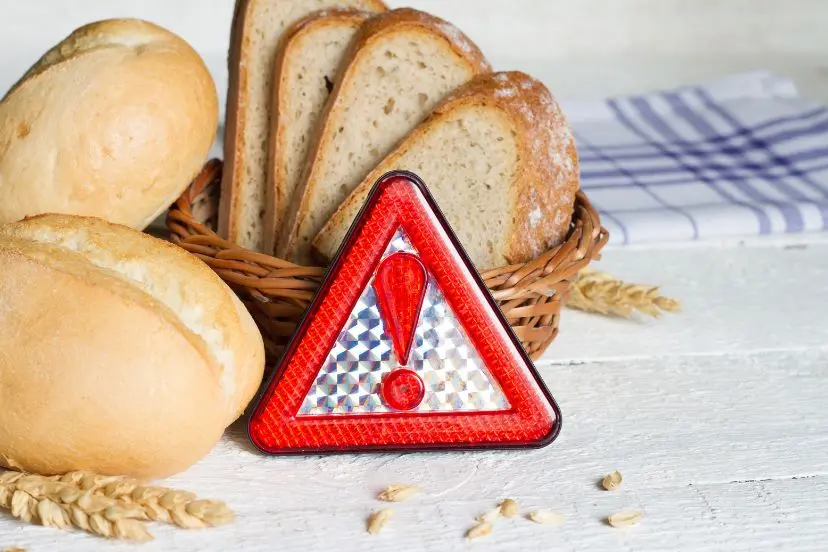Gluten Intolerance: Understanding the Signs, Causes and Management
Introduction
Living in a world where dietary trends and food sensitivities are on the rise, it’s essential to understand the impact gluten intolerance can have on individuals. Gluten intolerance, also known as gluten sensitivity or non-celiac gluten sensitivity, is a condition that affects a significant portion of the population. In this comprehensive guide, we’ll delve into the world of gluten intolerance, exploring its signs, causes, and effective strategies for managing this condition.
Gluten Intolerance
Gluten intolerance is a condition that occurs when the body reacts adversely to gluten, a protein found in wheat, barley, and rye. Unlike celiac disease, which is an autoimmune disorder, gluten intolerance does not result in damage to the small intestine. However, it can still cause a range of uncomfortable symptoms in those affected. Some common signs of gluten intolerance include:
1. Digestive Issues:
Individuals with gluten intolerance may experience bloating, gas, diarrhea, and abdominal pain after consuming gluten-containing foods.
2. Fatigue and Brain Fog:
Gluten intolerance can lead to feelings of fatigue, lack of energy, and difficulty concentrating, often referred to as “brain fog.”
3. Joint and Muscle Pain:
Some people with gluten intolerance may experience joint and muscle pain, similar to the symptoms of arthritis.
4. Skin Problems:
Gluten intolerance can manifest as various skin conditions, such as eczema, rashes, or hives.
5. Headaches:
Recurring headaches, including migraines, are frequently reported by individuals with gluten intolerance.
6. Mood Disorders:
Depression, anxiety, irritability, and mood swings may occur in response to gluten consumption.
While these symptoms can be indicative of gluten intolerance, it’s important to consult a healthcare professional for an accurate diagnosis.
Causes of Gluten Intolerance
The exact causes of gluten intolerance are not yet fully understood, but several factors may contribute to its development. Some potential causes and triggers include:
1. Genetic Predisposition:
Research suggests that certain genetic markers may make individuals more susceptible to gluten intolerance.
2. Leaky Gut Syndrome:
Intestinal permeability, commonly known as leaky gut syndrome, has been associated with gluten intolerance. This condition allows gluten particles to enter the bloodstream, triggering an immune response.
3. Gluten Composition:
Some studies propose that the composition of gluten proteins in modern wheat varieties may play a role in the development of gluten intolerance.
4. Gut Microbiota Imbalance:
Disruptions in the balance of gut bacteria, known as dysbiosis, have been linked to gluten intolerance.
It’s important to note that gluten intolerance is distinct from celiac disease, which is an autoimmune disorder triggered by gluten consumption. If you suspect you may have gluten intolerance, consult a healthcare professional for a thorough evaluation.
Managing Gluten Intolerance
Living with gluten intolerance requires a commitment to a gluten-free lifestyle. By eliminating gluten-containing foods from your diet, you can effectively manage your symptoms and improve your overall well-being. Here are some strategies to help you navigate a gluten-free lifestyle:
1. Education and Awareness
Educate yourself about foods that contain gluten and learn to identify hidden sources of gluten in processed products. Familiarize yourself with alternative grains, such as rice, quinoa, and amaranth, which are gluten-free.
2. Read Labels Carefully
Always read food labels meticulously to ensure they are gluten-free. Look for certifications like “certified gluten-free” or “gluten-free” symbols on packaging to make shopping easier.
3. Cook and Bake Gluten-Free
Experiment with gluten-free recipes and try new cooking techniques to maintain a diverse and enjoyable diet. Explore gluten-free flours, such as almond, coconut, or tapioca flour, for baking purposes.
4. Avoid Cross-Contamination
Prevent cross-contamination by using separate utensils, cookware, and cutting boards for gluten-free foods. Keep your kitchen surfaces clean and free from gluten residues.
5. Plan Ahead
Plan your meals and snacks in advance to ensure you always have gluten-free options available. This can help you avoid situations where you might be tempted to consume gluten-containing foods due to limited choices.
6. Seek Support
Join local or online support groups and communities to connect with others living with gluten intolerance. Sharing experiences, tips, and recipe ideas can make your gluten-free journey more enjoyable.
Frequently Asked Questions (FAQs)
Is gluten intolerance the same as celiac disease?
No, gluten intolerance and celiac disease are separate conditions. While both involve a negative reaction to gluten, celiac disease is an autoimmune disorder that causes damage to the small intestine, whereas gluten intolerance does not result in intestinal damage.
Can children develop gluten intolerance?
Yes, children can develop gluten intolerance. It’s important to monitor their symptoms and consult a pediatrician for a proper diagnosis and guidance on managing their dietary needs.
Can gluten intolerance be diagnosed through a blood test?
There is no specific blood test to diagnose gluten intolerance. The most effective approach is to undergo an elimination diet under the supervision of a healthcare professional.
Are oats safe for individuals with gluten intolerance?
While oats are naturally gluten-free, they can be contaminated with gluten during processing. Look for certified gluten-free oats or oat products to ensure they are safe for consumption.
Can gluten intolerance develop later in life?
Yes, it is possible for gluten intolerance to develop at any age, even if you have previously been able to consume gluten without issues. If you suspect gluten intolerance, consult a healthcare professional for an evaluation.
Is there a cure for gluten intolerance?
Currently, there is no known cure for gluten intolerance. The most effective management strategy is to follow a strict gluten-free diet.
Conclusion
Understanding gluten intolerance is crucial for those who experience adverse reactions to gluten-containing foods. By recognizing the signs, causes, and management strategies associated with gluten intolerance, individuals can take control of their health and well-being. Remember to consult a healthcare professional for a proper diagnosis and guidance on living a gluten-free lifestyle. Embrace the journey of discovering new gluten-free alternatives and connect with supportive communities to make the transition easier. With knowledge and perseverance, you can lead a fulfilling and healthy life, free from the constraints of gluten intolerance.




